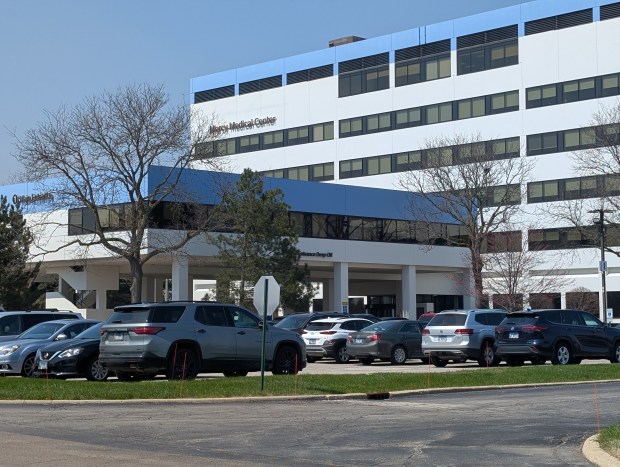AJACCIO, Corsica — Pope Francis on the first papal visit ever to the French island of Corsica on Sunday called for a dynamic form of laicism, promoting the kind of popular piety that distinguishes the Mediterranean island from secular France as a bridge between religious and civic society.
Speaking at the close of a Mediterranean conference on popular piety, Papa Francescu, as he is called in Corsican, described a concept of secularity “that is not static and fixed, but evolving and dynamic,” that can adapt to “unforeseen situations” and promote cooperation “between civil and ecclesial authorities.”
The pontiff said that expressions of popular piety, including processions, communal prayer of the Holy Rosary, “can nurture ‘constructive citizenship’ on the part of Christians. At the same time, he warned against such manifestations being seen only in terms of folklore, or even superstition.
During off-the-cuff remarks, the pope relayed his experience attending a festival in northern Argentina before his pontificate where he witnessed the importance of popular piety for the faithful “that seeks a healthy complicity.”
The visit to Corsica’s capital Ajaccio, birthplace of Napoleon, is one of the briefest of his papacy beyond Italy’s borders, just about nine hours on the ground, including a 40-minute visit with French President Emmanuel Macron.
Francis was joined on the dais by the bishop of Ajaccio, Cardinal Francois-Xavier Bustillo, who organized the conference that brought together some 400 participants from Spain, Sicily, Sardinia and southern France. The two-day meeting examined expressions of faith that often occur outside formal liturgies, such as processions and pilgrimages.
Often specific to the places where they are practiced, popular piety in Corsica includes the cult of the Virgin Mary, known locally as the “Madunnuccia,” which protected the island from the plague in 1656 when it was still under Genoa.
Corsica stands out from the rest of secularized France as a particularly devout region, with 92 confraternities, or lay associations dedicated to works of charity or piety, with over 4,000 members.
“It means that there is a beautiful, mature, adult and responsible collaboration between civil authorities, mayors, deputies, senators, officials and religious authorities,’’ Ajaccio Cardinal François-Xavier Bustillo told The Associated Press ahead of the visit. “There is no hostility between the two. And that is a very positive aspect because in Corsica there is no ideological hostility.”
The visit was awash in signs of popular piety. The pope was greeted by children in traditional garb and was continually serenaded by bands, choruses and singing troupes that are central to Corsican culture from the airport, to the motorcade route, convention center and cathedral. Thousands stood along the roadside to greet the pontiff and more waved from windows.
Renè Colombani traveled with 2,000 others by ship from northern Corsica to Ajaccio, on the western coast, to see the pope.
“It is an event that we will not see again in several years. It may be the only time that the pope will come to Corsica. And since we wanted to be a part of it, we have come a long way″ Colombani said.
The island, which Genoa ceded to France in 1768, is located closer to the Italian mainland than France.
From the conference, the pope traveled to the 17th-century cathedral of Santa Maria Assunta to meet with clergy, stopping along the way at the statue of the Madunnuccia where he lit a devotional candle.
During the traditional Sunday blessing, the pope offered prayers of peace for the Palestinian territories, Israel, Lebanon, Syria, as well as the people of Ukraine and Russia whom he called “cousins, brothers.”
”War is always a defeat,” he said.
Francis will later celebrate Mass at the Place d’Austerlitz park, where it is said Napoleon played as a child. Around 7,000 faithful are expected. He will meet privately with Macron at the airport before departing for the 50-minute flight back to Rome.
They are expected to talk about the world’s crisis, including wars in the Middle East and Ukraine, and environment and climate-related issues, Macron’s office said.
The pontiff pointedly did not make the trip to Paris earlier this month for the pomp surrounding the reopening of the Notre Dame Cathedral following the devastating 2019 fire. The visit to Corsica seems far more suited to Francis’ priorities than a grand cathedral reopening, emphasizing the “church of the peripheries.”
It is Francis’ third trip to France, each time avoiding Paris and the protocols that a state visit entails. He visited the port of Marseille in 2023, on an overnight visit to participate in an annual summit of Mediterranean bishops, and went to Strasbourg in 2014 to address the European Parliament and Council of Europe.
Corsica is home to more than 340,000 people and has been part of France since 1768. But the island has also seen pro-independence violence and has an influential nationalist movement, and last year Macron proposed granting it limited autonomy.
Associated Press writers Paolo Santalucia and Silvia Stellacci contributed to this report. Colleen Barry in Milan and Sylvie Corbet in Paris also contributed to this report.



